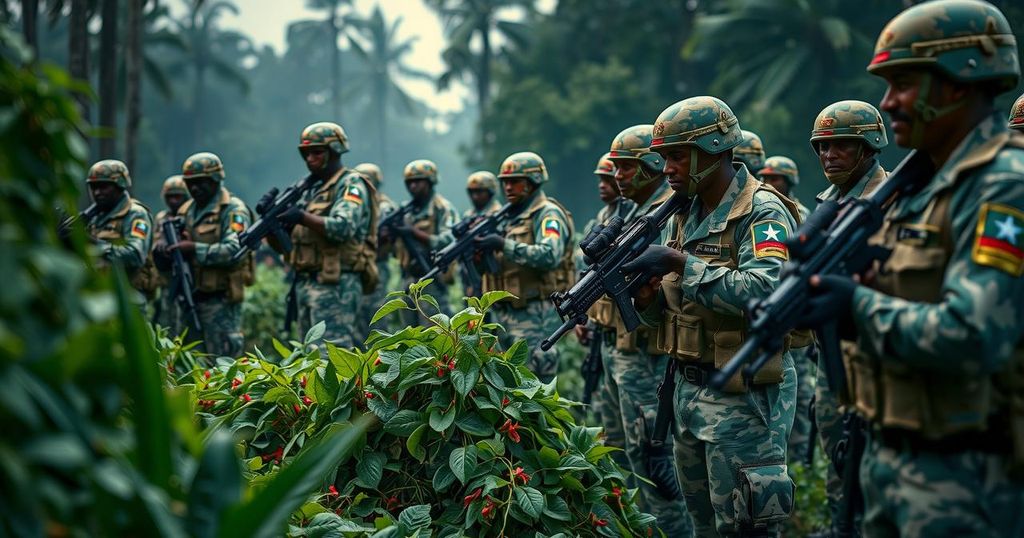Congo Accuses M23 Rebel Group of Ethnic Cleansing Amid Escalating Conflict

Congo’s government has accused the Rwanda-supported M23 rebel group of “ethnic cleansing” in eastern territories, citing significant violence and displacement of local populations. The conflict, involving over 100 armed groups, has resulted in a major humanitarian crisis, with millions displaced. Allegations against Rwanda’s military involvement in support of M23 further complicate the situation, despite a recent truce.
The government of Congo has formally accused the M23 rebel group, alleged to be supported by Rwanda, of committing acts of “ethnic cleansing” in the eastern regions of the country. Interior Minister Jacquemain Shabani reported a significant influx of foreign populations in the Rutshuru and Masisi territories, asserting that local residents have been violently displaced. According to Shabani, this mass expulsion aligns with the definition of ethnic cleansing. This accusation follows the recent appointment of M23 administrators in these contested areas. The resurgence of M23 has intensified the conflict in eastern Congo, where over 100 armed factions vie for territorial control amid rich mineral resources. As a result, this situation has led to one of the most severe humanitarian crises globally, displacing over seven million individuals, with many unable to receive necessary aid. The March 23 Movement (M23) predominantly consists of ethnic Tutsis and has a history dating back to its split from the Congolese army more than ten years ago. The group gained prominence in 2012 during its takeover of Goma, the largest city in eastern Congo. There are widespread allegations against Rwanda of involvement in war crimes, with U.S. and U.N. experts accusing it of providing military support to M23. Rwanda, however, has refuted these claims, while it has acknowledged maintaining troops in eastern Congo to protect its national security due to a perceived threat from Congolese forces amassing near the border. Despite a July truce facilitated by the United States and Angola that has mitigated hostilities between Congolese and Rwandan forces, violence between M23 and pro-government militias persists. A serious breach of the truce occurred in August, resulting in the death of 16 villagers, further aggravating the precarious situation.
The conflict in eastern Congo stems from a complex interplay of ethnic tensions, historical animosities, and struggles for control over valuable mineral resources. Since the outbreak of fighting, various rebel groups have emerged, creating a fragmented landscape of violence and humanitarian distress. M23’s return to power and its relations with neighboring Rwanda add further layers to this troubling narrative, with ongoing allegations of foreign military involvement and regional power dynamics influencing local conflicts.
In conclusion, the accusations by the Congolese government against the M23 rebel group highlight the alarming humanitarian crisis in eastern Congo, exacerbated by enduring ethnic tensions and external influences. With millions displaced and numerous armed factions competing for dominance, the region remains volatile. The international community’s attention is crucial in addressing these grievances to foster peace and stability in this war-torn area.
Original Source: apnews.com








